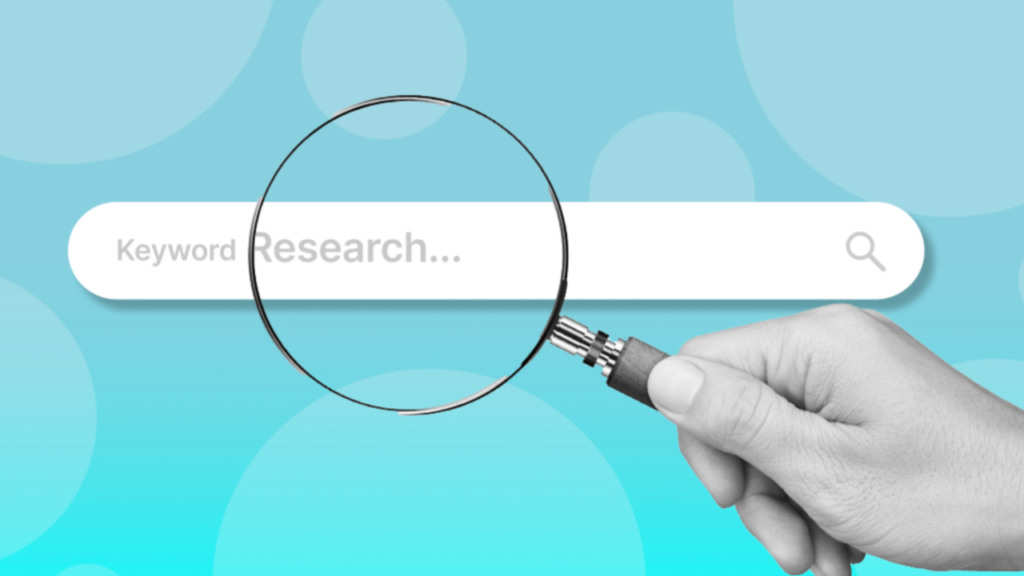In today’s ever-changing political landscape, having a solid online presence has become essential for candidates hoping to engage individuals successfully, communicate their views, and win votes. “Digital Marketing for Politicians” is a revolutionary method that uses online platforms to engage, inform, and organize people. It goes beyond simply being a plan.
This thorough book explores the complicated world of digital marketing, covering everything from social media campaigns to targeted advertising and data-driven analytics, giving politicians the expertise and abilities they need to negotiate the challenges of the digital era successfully.
Understanding the subtleties of internet marketing is becoming essential to any politician’s campaign strategy as political environments change since it shapes public views and affects political results in the fast-paced world of modern politics.
Also Read: SEO for WordPress Sites: Everything You Need to Know
What is Digital Marketing for Politicians?
The strategy of using online platforms to deliberately increase a politician’s exposure, engagement, and overall campaign success is known as “digital marketing for politicians.” It involves getting out to supporters using a variety of digital platforms, including social media, email campaigns, search engine optimization, and targeted advertising.
This strategy exceeds standard methods of campaigning by enabling politicians to customize their messaging according to audience insights and real-time data. Digital marketing allows politicians to successfully express their platforms, motivate supporters, and traverse the complexity of modern political environments.
It does this by helping politicians build a solid online presence, manage their reputation, and implement data-driven initiatives. It is a revolutionary instrument that modifies campaigns for the digital era, guaranteeing that candidates can connect with voters in a highly advanced and constantly changing society.
Role of Social Media in Political Campaigns
Social media gives politicians a dynamic and essential platform to interact with the public, which makes it necessary for today’s political operation. Politicians may instantly convey their thoughts, policies, and campaign updates because it facilitates direct contact.
Candidates can interact with one another in real-time on networking social sites like Facebook, Twitter, Instagram, and LinkedIn, answering queries and developing a likable online profile. With the help of these platforms, information can be shared quickly, increasing the reach of campaigns to a larger audience. Social media also makes it possible for targeted advertising to reach particular demographics with customized messaging.
The function goes beyond simple communication; it is an invaluable instrument for assessing public opinion, monitoring patterns, and quickly modifying campaign tactics. Essentially, social media has revolutionized political campaigns by providing hitherto unseen chances for visibility, interaction, and the development of an online relationship between candidates and voters.
Also Read: SEO For Startups- 10 Steps to Speed Up Your Startup’s Success
4 Benefits of Digital Marketing For Politicians
Achieve Greater and More Granular Reach
A focused strategy is necessary to use Digital Marketing for Politicians to reach a broader and more precise audience. Start by learning about the characteristics, hobbies, and habits of your target audience. Make thoughtful use of social media channels, creating material that appeals to particular voter demographics.
Use data analytics to find patterns and preferences so that advertising efforts may be more precisely targeted. To improve online content and raise exposure, use search engine optimization (SEO) strategies. Keep a direct channel of contact open by participating in email marketing. Employ geotargeting to send customized messaging to people in certain places.
Video material can increase participation by giving voters a closer-knit sense of connection. Digital Marketing for Politicians may reach a more sophisticated and influential audience by combining these tactics and remaining aware of the subtleties of your target, influencing public opinion and building genuine connections.
Reach Digitally Engaged Voting Generations
Using Digital Marketing for Politicians to effectively target digitally engaged voting generations requires matching strategies to the preferences of tech-savvy groups. Use social media platforms like Instagram, TikTok, and Snapchat to provide short, eye-catching content to younger voters. Utilize well-known individuals and social media influencers to promote your message and establish your reputation.
Tailor online campaigns to the unique needs and preferences of the audience that is actively engaged with digital media by leveraging data-driven insights. Take part in surveys, Q&A sessions, and interactive material to encourage reciprocal conversation and a sense of involvement.
To guarantee visibility, use targeted advertising across a range of digital platforms. Accept mobile-friendly strategies, keeping in mind that younger voters frequently use smartphones to get information. Politicians may create a significant and influential online presence by keeping up with the rapidly changing digital landscape and developing methods that appeal to generations that are actively involved in digital media.
Also Read: Mastering On-Page SEO Techniques: A Comprehensive Guide for Success
Capture the Attention of Voters with Programmatic Formats
In Digital Marketing for Politicians, grabbing voters’ attention using programmatic formats means using data-driven, automated ad placements to target particular populations successfully. Please make use of programmatic advertising platforms to target voters according to their online actions, behaviors, and demographics.
Create engaging and eye-catching advertising creatives that succinctly communicate the main campaign themes. Ad placements may be optimized for optimum impact by using real-time bidding. Use audio and video formats that are programmed to engage voters through a variety of channels, such as streaming services and podcasts.
Continually evaluate data insights to improve and modify tactics, making sure that programming formats correspond with the preferences and actions of voters. Politicians may enhance their reach, accuracy, and overall efficacy in grabbing voters’ attention in the crowded digital space by using programmatic advertising.
DSP Features Support a Successful Political Campaign Strategy
By utilizing DSP (Demand-Side Platform) characteristics, a political campaign plan in Digital Marketing for Politicians is far more likely to succeed. With the use of DSPs, politicians may target specific populations with messages that are specifically aimed at them. To maximize the impact of campaign spending and optimize ad placements, make use of real-time auction capabilities.
DSPs’ advanced analytics give users insights into the effectiveness of their marketing initiatives and allow for constant adjustment based on real-time data. Make use of personalized targeting to make sure that advertisements appear in pertinent online contexts.
DSPs facilitate multi-channel campaigns, which provide politicians easy access to voters on a variety of digital channels. Through targeted digital marketing efforts, political campaigns may improve their efficiency, efficacy, and overall success in engaging and mobilizing voters by utilizing the advantages of DSPs.
Marketing Platforms for Political Campaigns
Facebook Marketing
Facebook Marketing’s unmatched reach, targeting options, and variety of ad types make it the perfect platform for political campaigns. With an estimated 2.8 billion active users each month, it offers a large audience base for interacting with voters from all kinds of backgrounds. Precise audience segmentation according to variables like age, geography, interests, and political affiliations is made possible by the platform’s broad targeting capabilities.
Dynamic storytelling and successful delivery of a candidate’s message are facilitated by engaging ad forms, including interactive polls, carousels, and films. Facebook’s social structure promotes natural sharing, which increases the campaign’s word-of-mouth reach.
Real-time insights are provided by the platform’s analytics features, which enable campaigns to adjust and refine their approach as needed quickly. Thanks to its unique user base and modern advertising capabilities, Facebook has become a vital tool for political campaigns looking to raise awareness, encourage interaction, and motivate voters effectively.
Also Read: The SEO Blueprint: Top 10 SEO Ranking Factors
Twitter Marketing
Twitter Marketing stands out as the best medium for political campaigns because of its conversational environment, real-time participation, and extensive reach. Twitter offers a dynamic platform for politicians to communicate real-time information, announce policies, and interact with people. Its worldwide user base includes prominent individuals, activists, and regular citizens.
The platform is a valuable tool for distributing important campaign messages because of its short character restriction, which fosters compelling and concise communications. Hashtag trends allow political speech to be more widely visible, allowing campaigns to be included in more extensive conversations. The retweet and like features of Twitter let material circulate naturally, thereby expanding its audience.
Political campaigns are able to quickly modify their strategy in reaction to changing circumstances because of the platform’s responsiveness to breaking news. Overall, Twitter Marketing serves as a powerful and real-time communication channel, allowing political campaigns to connect authentically with voters and stay at the forefront of public discourse.
Instagram/Pinterest
Because of its large user base, rich narrative features, and visually-driven nature, Instagram is an excellent medium for political campaigns. With over a billion monthly active users—a diversified population spanning many age groups—Instagram provides politicians with a large audience to interact with.
Campaigns may highlight the human side of politicians by posting relevant tales, behind-the-scenes photos, and campaign events, thanks to the platform’s emphasis on visual material. Politicians may employ dynamic forms for interactive storytelling, such as Instagram Stories, IGTV, and carousel posts, to communicate their messages effectively and creatively.
Hashtags improve discoverability and let campaigns join in on pertinent discussions. Furthermore, Instagram’s advertising tools allow for focused marketing to particular demographics, guaranteeing effective campaign management. In essence, Instagram’s visually appealing and interactive nature positions it as a powerful platform for political campaigns to build authentic connections, foster engagement, and leave a lasting impact on voters.
YouTube
YouTube is an excellent choice for political campaigns because of its broad audience, video-focused structure, and capacity for producing captivating long-form material. YouTube has more than 2 billion monthly active users who are ready to consume a wide range of educational and enjoyable material. Because of the platform’s focus on video, political campaigns may engage voters more deeply by exposing in-depth policy talks, candidacies, and behind-the-scenes videos.
YouTube’s algorithm encourages discoverability, which facilitates the organic expansion of campaign videos’ viewership. To further optimize the effect of campaign messaging, the platform’s advertising solutions allow for precise targeting based on watching patterns, interests, and demographics.
Because comments and likes are interactive, viewers may participate directly with the content, transforming political campaigns into two-way dialogues. Political campaigns may effectively communicate their messages, involve voters, and take advantage of YouTube’s extensive reach by utilizing the platform’s video-centric ecosystem.
Top 7 Digital Marketing Tips for Politicians
Get to know your voters and audience.
By utilizing data analytics and audience insights, Digital Marketing for Politicians enables a sophisticated comprehension of voters and audiences. Politicians can investigate the characteristics, inclinations, and actions of their constituents by employing instruments like audience segmentation, website analytics, and social media analytics.
Likes, shares, and comments are examples of engagement metrics that give instantaneous feedback on how well a campaign’s messaging is received. Politicians may also get direct feedback from voters through email campaigns and surveys.
Through a thorough analysis of this data, politicians can better target their digital tactics, hone their messaging, and speak to particular issues, resulting in a more prosperous and individualized relationship with voters.
Also Read: Top 11 SEO Reporting Tools for Data-driven Insights
Identify online niches
The discovery of an online niche through analytics and targeted targeting is made possible by digital marketing for politicians. Politicians can identify particular communities, interest groups, or demographics that support their campaign goals by examining data from websites, online forums, and social media platforms.
Social media analytics, such as engagement trends and follower demographics, offer essential details about the online niche that is interested in a candidate’s message. Within these particular sectors, the campaign’s impact is increased by targeted advertising and content production that speaks to these specialist audiences.
Have a compelling message.
Creating engaging stories that connect with the target audience is essential to delivering a message that works with digital marketing for politicians. Politicians may effectively convey their ideas, principles, and vision by using websites, email campaigns, and social media. A unified and memorable image is cultivated via consistent branding and marketing across all media.
Data analytics facilitates real-time modifications to maximize message efficacy by measuring audience reaction. The impact of the message is increased and made more accessible and shareable via the use of video material, narrative strategies, and captivating imagery.
Have a clear and recognizable brand.
Digital Marketing for Politicians requires a purposeful fusion of visual consistency, messaging coherence, and audience interaction to establish a distinct and identifiable brand. By employing standardized colors, logos, and graphics, politicians may strengthen their brand identification through social media, websites, and email campaigns.
Creating a compelling and genuine story about their mission and core beliefs improves brand awareness. Targeted advertising makes a brand visible to particular audiences, and analytics evaluate how well brand-building initiatives are working. Engaging constituents through surveys, comments, and Q&A sessions strengthens the brand’s perception as personable and responsive while fostering a sense of connection.
Have a well-designed and practical website.
Building a trustworthy online presence requires having a website that is both attractive and functional, which can be achieved with Digital Marketing for Politicians. The website acts as the central hub for disseminating policy, interacting with voters, and supplying essential data. It should have an intuitive design that makes it simple to use and accessible across a range of devices. Impactful user experiences are facilitated by clear call-to-action, brief messages, and visually appealing content.
Enhancing involvement may be achieved by incorporating social network connections, contribution gateways, and newsletter sign-ups. A dedication to openness and continuous communication is demonstrated via frequent updates and a blog area. Politicians may make sure their website ranks better in search results and attracts more prospective voters by optimizing it for search engines.
Reach your audience through digital media.
Reaching your audience through Digital Marketing for Politicians involves leveraging a diverse array of digital media channels to maximize visibility and engagement. Social media platforms like Facebook, Twitter, and Instagram serve as dynamic hubs for real-time interaction and content sharing, while targeted advertising ensures specific demographics are reached effectively.
Email campaigns provide a direct line of communication, delivering tailored messages and updates. Video content on platforms like YouTube fosters a more personal connection, allowing politicians to convey their narratives dynamically. Podcasts and webinars further diversify the outreach, catering to audiences preferring audio formats.
Learn about your political rival’s online strategy.
Learning about your political rival’s online strategy through Digital Marketing for Politicians involves keen observation and analytical insights. Monitoring their social media activities, content engagement, and ad placements offers valuable data on their messaging and audience targeting.
Analyzing their website structure, blog posts, and email campaigns provides insights into their crucial policy focuses and communication style. Utilizing tools like social media listening helps track sentiment around their campaign.
Examining their online presence allows for strategic comparisons, helping you refine your approach and respond effectively. By staying attuned to their digital footprint, you can gain valuable intelligence to fine-tune your strategy, address potential vulnerabilities, and stay competitive in the digital arena.
How can politicians engage with voters through digital marketing?
A more direct and dynamic relationship is fostered by digital marketing, which gives politicians the ability to interact with people via a variety of online platforms, disseminate their views, and get real-time responses.
What social media channels work best for political campaigns?
Because of their large user populations, variety of content formats, and targeting options, social media platforms like Facebook, Instagram, YouTube, and Twitter are widely used.
In what ways can digital marketing for politicians and political campaigns leverage data analytics?
A more successful outreach may be achieved by using data analytics to assist campaigns in better understanding audience habits, adjusting plans based on findings, and maximizing messaging.
Conclusion
Digital marketing for politicians guided by SEOJust has become an essential instrument in the dynamic world of politics. Through the use of digital platforms, data analytics, and focused tactics, policymakers may establish genuine connections with voters, influence public sentiment, and execute more effective and significant campaigns. Due to the dynamic nature of digital marketing, campaigns may be adjusted in real-time to reflect changing voter moods and patterns. In conclusion, adopting digital marketing is essential for politicians navigating the intricacies of the contemporary political landscape—it’s not just a matter of choice.




